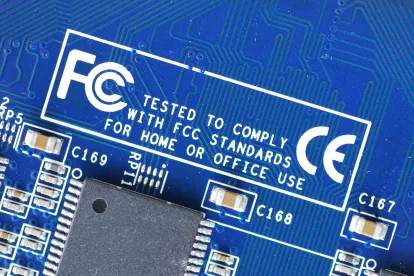We are pleased to present the latest edition of our Monthly TCPA Digest, providing insights and news related to the Telephone Consumer Protection Act (TCPA).
In this issue, we examine several FCC releases and filings made in late December, before the agency suspended operations due to the ongoing partial government shutdown. Most notably, we review the agency’s call for comments on a petition seeking clarification of the meaning of “telemarketing” and “dual purpose” under the TCPA. We also cover recent petitions to the agency, including one seeking a ruling about the use of soundboard technology, which allows callers to communicate with consumers through prerecorded messages with the option to speak directly to consumers. In addition, we discuss a recent Eighth Circuit holding for an insurance company in a multimillion-dollar TCPA class action. Based primarily on the carrier’s careful record-keeping practices, the court held that the company was entitled to the presumption that its insured received notice of the TCPA policy exclusion.
Part I – TCPA Regulatory Update
Although the Federal Communications Commission (“FCC”) has been affected by the government shutdown, it released several TCPA items in late December before it suspended most operations due to the lapse in funding.
FCC Seeks Comment on the Meaning of “Telemarketing” and “Dual Purpose” Under the TCPA
Most notably, the Consumer and Governmental Affairs Bureau released a Public Notice seeking comment on a Petition for Expedited Declaratory Ruling filed in mid-December by SGS North America, Inc. The petition seeks a ruling clarifying the meaning of “telemarketing” and “dual purpose” under the TCPA to confirm “that a call is subject to the [FCC’s] prior express written consent requirements only if it advertises the commercial availability or quality of any property, good, or service, or encourages the purchase or rental of, or investment in, property, goods, or services within the four corners of the communication itself.” In the alternative, the petition seeks a “retroactive waiver from the prior express written consent requirements with respect to any telephone call made to schedule, confirm, or otherwise discuss a motor vehicle inspection.” Comments are due January 24, 2019, and reply comments are due February 8, 2019, assuming the FCC has resumed operations.
FCC Seeks Comment on Faxes Requesting Information on Medical Practices
The Consumer and Governmental Affairs Bureau also released a Public Notice seeking comment on a Petition for Declaratory Ruling filed in mid-December by Best Doctors, Inc. The petition asks the FCC to clarify that a fax requesting that the recipient verify the contact information and operational status of a medical practice for inclusion in a database, and that does not mention the commercial availability of any property, good, or service, is not an advertisement under the TCPA. Best Doctors, Inc. argues that clarification is needed because, although the FCC’s 2006 Junk Fax Order found that faxes that are pretexts or part of overall marketing campaigns to advertise a commercial good or service are advertisements under the TCPA, the FCC did not provide clear guidance regarding what factors should be considered when determining whether a fax message constitutes a pretext or part of an overall marketing campaign to advertise a good or service. In particular, the FCC did not address whether information not contained in the body of a fax, such as subsequent non-faxed solicitations, should be considered. Comments are due January 25, 2019, and reply comments are due February 8, 2019, assuming the FCC has resumed operations.
FCC Petition Asks for Guidance on the Use of Soundboard Technology
In addition to the above FCC actions, there were a couple of other interesting filings last month. NorthStar Alarm Services, LLC filed a Petition for Expedited Declaratory Ruling regarding the use of soundboard technology. Soundboard technology allows callers to communicate with consumers over the phone by playing prerecorded messages instead of using the caller’s live voice. Callers choose the messages to play in response to consumer’s statements but retain the ability to speak directly to consumers if needed. In its petition, NorthStar Alarm Services asks the FCC to clarify that the use of soundboard technology does not constitute the use of an artificial or prerecorded voice that delivers a message under the TCPA. Alternatively, the petition seeks a declaration that the use of soundboard technology on a one-to-one basis, whereby the soundboard agent conducts only one call with one individual at a single time, does not constitute the use of an artificial or prerecorded voice that delivers a message under the TCPA. Notably, Federal Trade Commission staff regard calls using soundboard technology as robocalls for the purposes of the Telemarketing Sales Rule.
Application for Review of the FCC’s Order to Eliminate 2006 Solicited Fax Rule
Gorss Motels, Inc., Compressor Engineering Corporation, Swetlic Chiropractic & Rehabilitation Center, Inc., Shaun Fauley, and JT’s Frames, Inc. (together “Applicants”), filed an Application for Review by the full Commission of the November 14, 2018 Consumer and Governmental Affairs Bureau Order eliminating the 2006 Solicited Fax Rule (covered in our November TCPA Digest). The order denied as moot ten petitions and two petitions for reconsideration seeking retroactive waivers of the rule, finding that the D.C. Circuit’s decision in Bais Yaakov of Spring Valley v. FCC vacated the rule. Applicants argued that the order erroneously assumed the D.C. Circuit’s decision in Bais Yaakov was a “non-discretionary mandate” to vacate the rule. Two oppositions to the application for review have already been filed, one by Fetch, Inc. d/b/a Petplan and another by Ohio National Mutual Holdings, Inc., supporting the Bureau’s decision.
Part II – TCPA Class Action Update
The Carrier with Better Record-Keeping Practices Than the Insured Wins a Significant TCPA Insurance Coverage Dispute
Last week, the Eighth Circuit held that an insurance company was entitled to the presumption that its insured received notice of the TCPA policy exclusion. As a result, there was no coverage available in a TCPA lawsuit against the insured. The facts were on the carrier’s side mainly because it maintained better record-keeping practices than the policyholder.
In this multimillion-dollar TCPA class action, the court’s holding that the insurance carrier, American Family Mutual Insurance Company, had no duty to defend or indemnify a marketing firm, Vein Centers, hinged on documentation of communications between the parties. See Am. Family Mut. Ins. Co. v. Vein Ctrs. for Excellence, Inc., No. 17-3266, 2019 U.S. App. LEXIS 98 (8th Cir. Jan. 3, 2019). The underlying 2011 TCPA lawsuit (which is still pending on appeal) was a class action alleging that the marketing firm violated the Telephone Consumer Protection Act by sending junk faxes. In that case, the firm’s potential exposure was claimed to exceed $17.6 million.
At the inception of the 2011 TCPA class action, the marketing firm tendered the claim to the insurance carrier pursuant to a Businessowners Policy. When the carrier issued this policy to the marketing firm many years ago, the policy did not contain a TCPA exclusion. In 2008, however, the carrier added a TCPA exclusion to the policy. There was a dispute over whether or not the insured actually received a requisite notice of this exclusion. Initially, the carrier agreed to provide a defense in the 2011 TCPA class action, subject to a full reservation of rights. In 2015, however, the carrier filed a declaratory relief action, arguing that the TCPA exclusion added in 2008 was valid and enforceable.
This coverage dispute essentially came down to which side could prove that the 2008 notice of the TCPA exclusion was actually received by the insured. Had the carrier not given proper notice of the exclusion, the exclusion would have been invalid. The carrier could not locate the notice, and the insured maintained that it never received it, which rendered the exclusion invalid. The law typically presumes, however, that mailed materials are received by the intended recipient. In Missouri (where this coverage case was pending), the sender also does not need to show “direct proof” of the actual mailing.
Therefore, the carrier opted to prove its case via deposition testimony from its corporate representative, who testified that she mailed the notice years ago and that, based on the company’s custom and procedures, the insurer likely sent the notice letter in a timely manner—just as it had done with other letters in similar circumstances. Notably, she also “identif[ied] an internal communication sent to American Family agents and staff, which indicated current holders of the Businessowners Policy would be sent a PLC notification setting forth the newly instituted” TCPA exemption. All this was sufficient to create a rebuttable presumption in the carrier’s favor. Therefore, at least some rebuttal was needed from the insured showing that the coverage notice never arrived. The policyholder’s failure to rebut the presumption of receipt negated coverage in this high-exposure TCPA case.
Admittedly, there was no “definitive proof” that the carrier had actually mailed the notice. Thus the appellant argued that the carrier’s failure to produce the actual copy of the letter was a death knell to the insurer’s case. It produced no rebuttal evidence, however, that the firm never received the notice. The court, therefore, held that the carrier’s unrebutted evidence was sufficient to uphold the TCPA exclusion.
“Speculation that American Family’s normal business procedures were not followed in this case is not the same as affirmative evidence that [the insured] did not receive the [notice] documents,” held the Eighth Circuit. If the insured wanted to prove that it did not receive notice of the policy revisions with the added TCPA exclusion, it had to do more than make barebones assertions. Although the Eighth Circuit did not specify what proof would have sufficed to rebut the presumption that the insured received notice, a log of incoming and outgoing correspondence to the carrier could have potentially satisfied the court and allowed for the possibility of coverage in this high-exposure case.
Insurance coverage litigation often postdates the issuance of the underlying policy by many years. In the interim, employees may change jobs; memories can fade; and records can get lost, destroyed, or never saved in the first place. Inevitably, insufficient record-keeping practices often lead to the loss of coverage. Therefore, those companies that choose to maintain careful record-keeping practices, logging or saving all communications (including notices) to and from their insurance carriers (and brokers) will find themselves better prepared for litigation and will greatly maximize coverage potential.
Additional authors: Jennifer L. Kelly, E. Crystal Lopez, Esteban Morales, Matthew Novian, Nicole V. Ozeran, Natalie Prescott







 />i
/>i

